detail profile wiktor zborowski
Peran Yang Di Mainkan Wiktor Zborowski
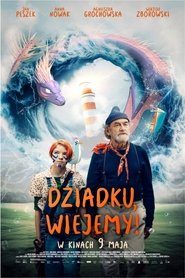 One day Grandpa Jeremi causes such...
One day Grandpa Jeremi causes such...Dziadku, wiejemy! 2025
One day Grandpa Jeremi causes such a commotion in the retirement home that he is threatened with transfer to a psychiatric hospital. Marta, his daughter, agrees to take him in, although this is difficult for her, since Jeremi is unpredictable and has a vivid imagination. The situation is complicated by Jagoda, Marta’s daughter, who adores her grandfather and shares his crazy ideas. When Jeremi refuses to live with the family, Jagoda decides to take matters into her own hands. The girl and grandfather embark on an adventurous journey to the legendary ship Light of the Sea.
 A humorous and emotional story of...
A humorous and emotional story of...Off We Go! 2025
A humorous and emotional story of a family as unpredictable as a tornado. Their life gains momentum when the seniors - Józiek and Ela - decide to set off on a journey through Poland. They want to experience this trip on their own terms: to laugh, to take risk and love as if they were 20. And since their son has no intention to let them go, feisty seniors starts with stealing the iconic car Nysa...
 Agnieszka and Marcins love is blooming...
Agnieszka and Marcins love is blooming...The End of the World, or Egg Nogg 4 2022
Agnieszka and Marcin's love is blooming, just like Kasia and professor Wolanski. Grandma Solska only dreams of the wedding of her only grandchild - However, his former lover, Bozenka, stands in the way of the happiness of young Zawada. Mrs. Wolanska decides to radically change her life and disappears in mysterious circumstances. Peace of Piotr and Marlenka is disturbed by the unexpected visit of his mother from overseas – And some very compromising photos trigger an avalanche of events. The real end of the world is underway.
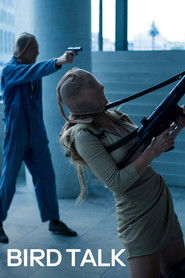 Based on a script by Andrzej...
Based on a script by Andrzej...Bird Talk 2019
Based on a script by Andrzej Żuławski, this is a fascinating on-screen dialogue between father and son that combines nostalgia and fury, the sublime with humor, and old-school style with a sharp, penetrating look at Polish reality. The eponymous bird talk is the language used by those excluded from the aggressive majority: a history teacher tormented by children, a teacher of Polish studies fired from his job, a girl who cleans a banker’s villa, a florist with a club foot and a student with a fascination for cinema. Pushed to the margins by the extreme right, they defend themselves with irony, songs and quotes from the classics.
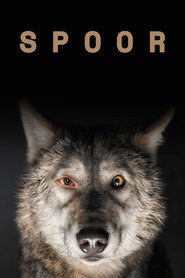 A story about Janina Duszejko an...
A story about Janina Duszejko an...Spoor 2017
A story about Janina Duszejko, an elderly woman, who lives alone in the Klodzko Valley where a series of mysterious crimes are committed. Duszejko is convinced that she knows who (or what) is the murderer, but nobody believes her.
 Based on a Soviet propaganda story...
Based on a Soviet propaganda story...Dawn 2015
Based on a Soviet propaganda story about Young Pioneer (the Soviet equivalent of a Boy Scout) Morozov, who denounced his father to Stalin’s secret police and was in turn killed by his family. His life exemplified the duty of all good Soviet citizens to become informers, at any expense. In our film, 75 years later, we call him little Janis. He is a Pioneer who lives on the Soviet collective farm “Dawn”. His father is an enemy of the farm (and the Soviet system) and plots against it. Little Janis betrays his father; his father takes revenge upon his son. Who then in this old Soviet tale is good and who is bad? This film reveals that a distorted brain is always dangerous. Even today.
 Karol has everything He has three...
Karol has everything He has three...Och, Karol 2 2011
Karol has everything. He has three mistresses in addition to the bride. He is charming, loves sex and enslaves women in the blink of an eye. He's also well aware of that women like and uses it for his benefits.
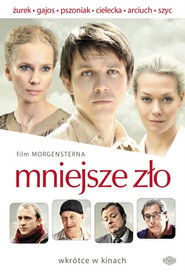 There is a writer who in...
There is a writer who in...Lesser Evil 2009
There is a writer who in the late 1970s managed to publish a poem in the monthly "Nowy Wyraz". It was enough to become a self-confessed writer whose name began to appear in the state media. The writer takes full advantage of his privileges - he flirts with power, sympathizes with the opposition, and collapses his studies at the same time. He is saved from going to the army by an exalted essayist whose sister is the head of the psychiatric hospital in Tworki. In a psychiatric institution, a writer meets a schizophrenic who writes a novel. After his suicide, the protagonist takes over the draft, which he publishes outside of censorship under his name, thanks to which he gains fame, fame and money. August '80 breaks out....
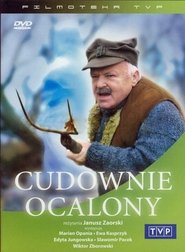 The 1960s in Masuria Mikoaj Biesaga...
The 1960s in Masuria Mikoaj Biesaga...Saved by a Miracle 2004
The 1960s in Masuria. Mikołaj Biesaga, seriously injured during the war, swore that if he survived, he would build a chapel to the Blessed Virgin Mary. Years passed, and the "miraculously saved" person did not keep his promise. Now feeling that it is probably time to die, he decides to fulfill his obligations.
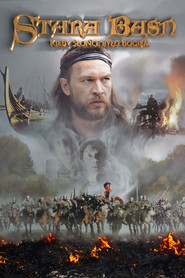 In IX century Europe on the...
In IX century Europe on the...The Old Fairy Tale: When the Sun Was God 2003
In IX century Europe, on the brink of Poland's birth, a cruel prince, Popiel, murders his cousins to ensure his son's succession. His crimes lead to an uprising of his subjects lead by the former commander of Popiel's army, Piastun, and a young hunter and warrior, Ziemowit. Meanwhile Ziemowit falls in love with Dziwa, lovely girl who is to become a priestess in the local temple ...
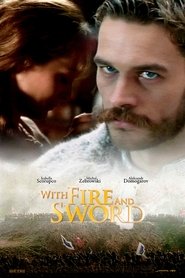 In the mid17th century Poland...
In the mid17th century Poland...With Fire and Sword 1999
In the mid-17th century, Poland was the largest, most democratic, and most tolerant country in Europe. However, a tragic civil war brought about the gradual decline of the once glorious republic... An epic story about the Ukrainian uprising against the Polish-Lithuanian Commonwealth magnates in the 17th Century.
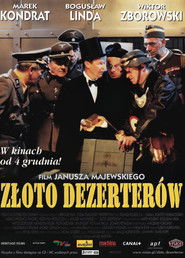 Deserters Gold the sequel to the...
Deserters Gold the sequel to the...Deserter's Gold 1998
"Deserter's Gold", the sequel to the very popular "The Deserters", is a rich war comedy, skipping humorously around the more serious dangers of a war. Deserters Gold takes place during World War II, while the first film happened during WWI. The heroes' mission is to rob a Nazi-run bank in Poland for gold that will buy military supplies for the Polish Underground.
 Kasia and Pawel having got married...
Kasia and Pawel having got married...Topsy Turvy, or Egg Nogg 2 1989
Kasia and Pawel, having got married, live in the village of Brzozki, 10 kilometres from Grabow. Kasia wants to return to her pedagogical studies, so she does not want to have children yet. Pawel announces that he wants to break away from the traditional village farm and focus on specialised sheep breeding, which causes a family argument. Kasia's parents anxiously await the birth of their grandchildren. Things get even more complicated when the Wolanskis arrive in Grabow. They offer to help Kasia go back to university, but in return Kasia has to look after little Piotr as the docent is leaving for London where he has received a month-long study grant.
 Following the emotions associated with entrance...
Following the emotions associated with entrance...Egg Nogg 1988
Following the emotions associated with entrance examinations to the faculty of pedagogy, Catherine Solska returns to his native village. And here she will surprise - the family without their knowledge to begin preparations for engagement with a rich neighbor Kolasa. Girl falls into despair, tries to oppose the decision of the parents, but is closed in his room. On visits to her fiance and flees out the window calling mail to the university. Receives misleading information and is convinced that was not accepted to college. Resigned returns home and agrees to the wedding. Meanwhile, on the eve of the wedding the postman brings the notice of acceptance to the university.
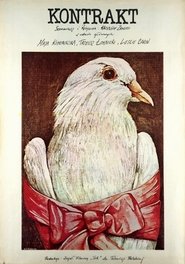 Bearing traces of the old Anton...
Bearing traces of the old Anton...The Contract 1982
Bearing traces of the old Anton Chekhov play The Wedding, The Contract is set during an "arranged" ceremony. The bride and groom barely know each other, but this matters not at all to their tradition-bound families. At the last minute, the bride balks. Only slightly nonplused, the groom's father, a status-seeking doctor, decides to go ahead with the expensive reception anyway. Polish director Krzysz Zanussi uses this scenario to stick it to capitalist corruption, and to society's destruction of the individual spirit. Leslie Caron, the one recognizable member of the cast, is outstanding as a wealthy, over-the-hill ballerina who happens to be a kleptomaniac.
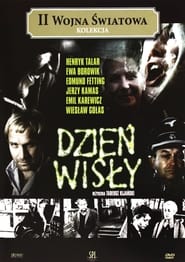 September 13 1944 On the right bank of...
September 13 1944 On the right bank of...Dzień Wisły 1980
September 13, 1944. On the right bank of the Vistula, a group of young people is getting ready to cross to help the fighting Warsaw. Tadeusz, a young poet with amputated legs meets Katarzyna. Two officers of the Home Army and the AL, Polish and Soviet soldiers come here. A fight ensues with the Nazis trying to get out of the encirclement. Katarzyna is raped by one of them in front of the powerless Tadeusz. . . Two boats are sinking crossing the Vistula. Tadeusz falls into the river with a wheelchair ...


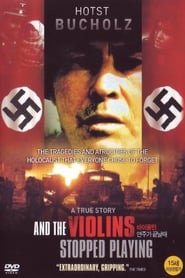 This is the true story about...
This is the true story about...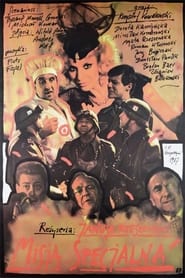 In 1943 a drunk cook is mistaken...
In 1943 a drunk cook is mistaken...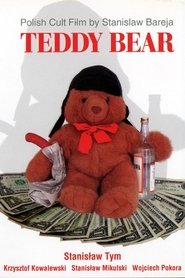 En route to London Bear discovers...
En route to London Bear discovers...